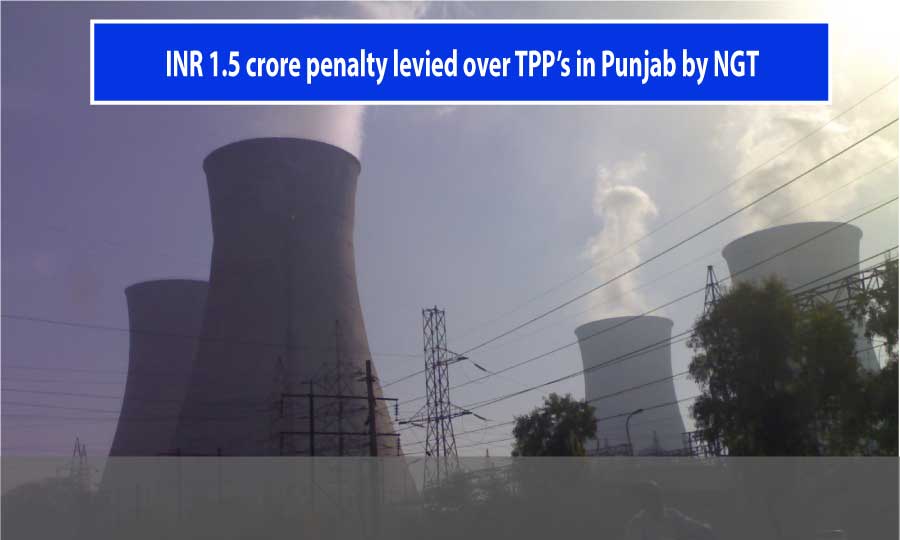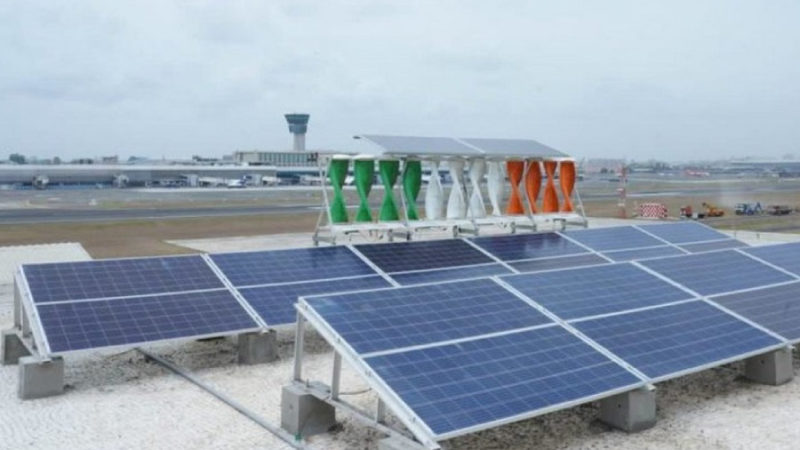NGT penalized 3 TPPs in Punjab with INR 1.5 crore fine

INR 1.5 crore penalty levied over TPP’s in Punjab over failure to meet the disposal of fly ash scientifically in order to control environment pollution..
Under “environmental compensations” for the failure to meet the disposal of fly ash scientifically, three thermal power plants in Punjab were penalized by the National Green Tribunal (NGT) with a fine totaling to INR 1.5 crore.
In addition, the State Pollution Control Board has also been directed to ensure the deposit of the compensation with the Central Pollution Control Board within 30 days, by the NGT through its recent order.
The fine has been imposed on the two private and one state-owned thermal power plants. In the private sector – Goindwal Sahib TPP and Nabha Thermal Power Plant, Rajpura, have been penalized with INR 47,08,480/- and INR 55,70,239/- respectively. While PSPCL’s Guru Hargobind Thermal Plant, Lehra Mohabbat, has been asked to make a deposit of INR 53,94,832/- as a penalty.
In addition, the state-owned Guru Gobind Singh STPP, Ropar, has also been asked to submit the data related to the utilization of fly ash by the plant. Moreover, the NGT has also sent a notice to a state-owned plant that has not yet submitted its data. These thermal plants could be fined at a later stage.

Preventing Environment
Fly Ash is one of the carbon combustion materials, consisting of small particles expelled by the flue gas from the boiler. Since the majority of thermal power stations in India use bituminous coal this produces large quantities of fly ash.
Though, depending upon the source and makeup of the coal being burned, the components of fly ash vary considerably. Usually, the fly ash particles are consist of silica, alumina, oxides of iron, calcium, and magnesium and toxic heavy metals that are extremely detrimental to the environment.
In this regard – earlier this year, the NGT had asked thermal power plants to take prompt steps for scientific disposal of fly ash, warning that the failure to do so would entail a penalty.
“The thermal power plants may take prompt steps for scientific disposal of fly ash in accordance with the statutory notification issued by the Ministry of Environment and Forest under the provisions of the Environment Protection Act requiring 100 percent utilization and disposal of fly ash,” the NGT had said.
Fly Ash Concerns
The recycling of fly ash has become an increasing concern in recent years. According to a study by the Centre for Science and Environment (CSE), the disposal of fly ash is a major problem in India. Currently, there is only utilization of about 50-60% of the total fly ash generated by the power sector in the country.
Meanwhile, as per one estimate, about a billion tonnes of this toxic ash remain dumped in ponds, polluting land, air, and water. By 2021-22, the thermal power sector in India is estimated to produce 300 million tonnes of fly ash a year. This could make the utilization of all the fly ash being generated – even tougher.
Thus, to protect the environment, it is important to prevent the dumping of fly ash on land by the Thermal Power Stations and find innovative ways to promote the utilization of ash in building materials and construction activity.
Follow and connect with us on Facebook, LinkedIn, Twitter









